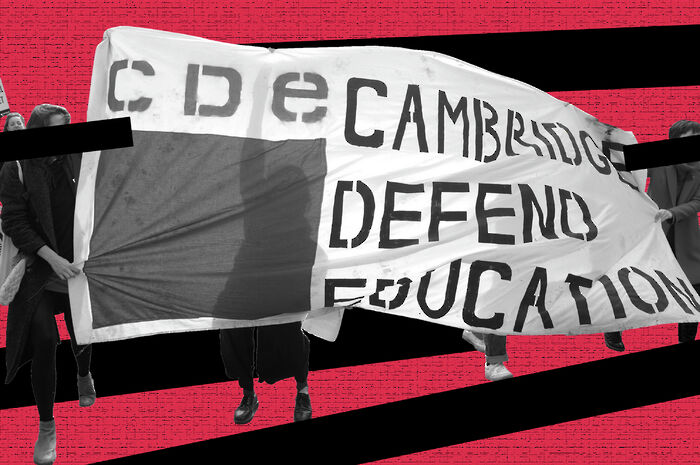CUSU to formalise ‘collaborative’ relationship with GU and Cambridge UCU
CUSU and the GU would be obligated “to support the right to fair pay, fair pensions and fair treatment for all staff”

Tonight, at the first CUSU Council of the new academic year, those present voted unanimously to adopt a memorandum of understanding between CUSU, the Graduate Union (GU), and the Cambridge University and College Union (UCU), in an effort to solidify the relationships between them.
The motion was proposed by CUSU Education Officer Matt Kite, who told Council that throughout last year’s industrial action, CUSU, the GU and the Cambridge UCU “got to know each other much better”, and noted that with their “overlapping membership”, the unions “working together on a huge number of issues is a really good thing”. The memorandum states that it “intends to formalise these collaborations to ensure their longevity”.
Got a story for us?
Seen something you think Varsity should be talking about? Contact our News team at news@varsity.co.uk.
Speaking to Varsity, Kite clarified that the memorandum had been approved by Cambridge UCU’s Executive Committee, but needed to be approved by the GU before joint work began.
Disabled Students’ Officer Emrys Travis used the topic of lecture-capturing as an example of an area where both CUSU and Cambridge UCU had been having detailed discussions, but separately, and with different focuses.
Oliver Jones, vice-president of Christ’s JCR, asked about what would happen “if CUSU policy should come into conflict” with GU or UCU aims, saying that “there’s talk of further strike action coming up” with the resulting possibility “that the student voice could say we don’t approve”.
Kite emphasised that “we can opt-out of this at any time, and it doesn’t bind us to anything we don’t want to do”. He said that the “way it’s worded allows for minor disagreement”, pointing out that CUSU is in favour of lecture capture, while UCU “have some concerns”. He noted that these differing views do not present “an obstacle” to the unions working together on different issues.
The memorandum touched on several commitments – with Cambridge UCU obliged to “proactively contact the students’ unions when policy developments may impact on student teaching or postgraduate student employment”, as well as “to support students’ rights to fair learning and working conditions”.
CUSU and the GU, similarly, would be obligated to “proactively contact [Cambridge UCU] when policy developments impact on campaigning plans”, as well as “to support the right to fair pay, fair pensions and fair treatment for all staff”.
CUSU and the GU had previously entered a memorandum of understanding in May 2017, which similarly emphasised collaboration between the two unions, and saw them “agree to to share information in confidence about their strategic and other plans at an early stage”. While also legally non-binding, it did include clauses specifically referring to conflict resolution – allowing the president of either union to eventually take concerns to the pro-vice-chancellor for education – which the new memorandum lacks.
Last year, CUSU consistently demonstrated support for staff strikes, with a Council vote to support the strikes passed in January, and an initial open letter to express solidarity with Cambridge UCU released in February. Many students attended rallies throughout the strike period, and saw it as part of a larger fight against the marketisation of higher education. This culminated in the occupation of the Old Schools building in March.
 Features / Should I stay or should I go? Cambridge students and alumni reflect on how their memories stay with them15 December 2025
Features / Should I stay or should I go? Cambridge students and alumni reflect on how their memories stay with them15 December 2025 News / Cambridge study finds students learn better with notes than AI13 December 2025
News / Cambridge study finds students learn better with notes than AI13 December 2025 Comment / The magic of an eight-week term15 December 2025
Comment / The magic of an eight-week term15 December 2025 News / News In Brief: Michaelmas marriages, monogamous mammals, and messaging manipulation15 December 2025
News / News In Brief: Michaelmas marriages, monogamous mammals, and messaging manipulation15 December 2025 News / Uni Scout and Guide Club affirms trans inclusion 12 December 2025
News / Uni Scout and Guide Club affirms trans inclusion 12 December 2025











